Sport has the power to positively change lives and build communities but it can only do this when the experience places physical, social, and emotional well-being at the very core. Supporting positive mental health is a key component of delivering participant-centred volleyball.
We are excited to share a mental health toolkit for volleyball organisations and programs to embed mental health and well-being at the centre. Our intention with this toolkit is to provide simple, easy-to-execute actions that any volleyball organization or program can take.
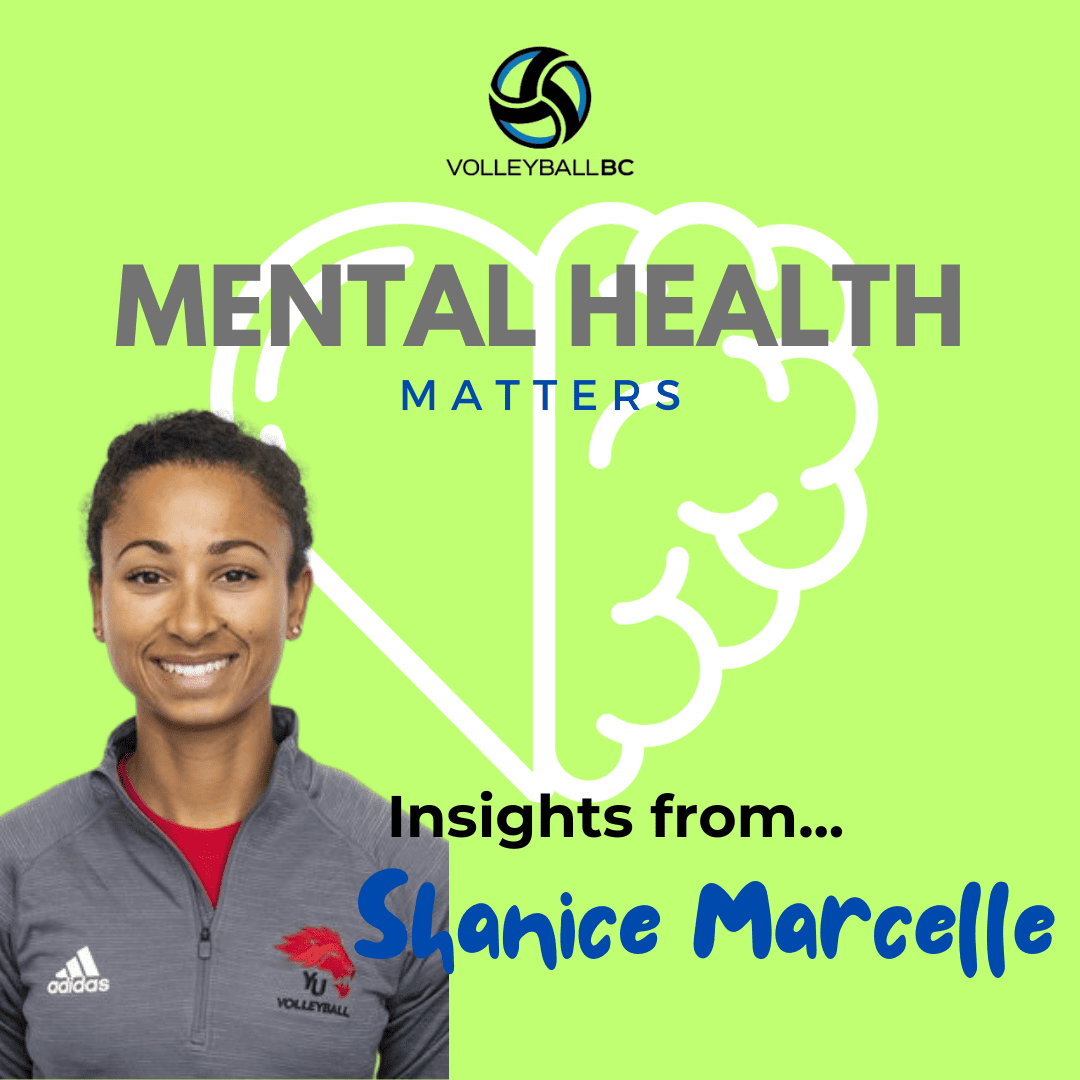
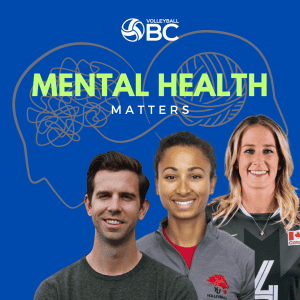
what's in the toolkit?
The toolkit includes four different elements that are outlined in the right-hand diagram.
Each of these elements can be digested individually or as a whole. The emphasis is practical tools which key influencers – parents, coaches, officials, administrators, and athletes – can use in order to affect positive change and provide an environment of well-being and positive performance.
I am starting out, where do I begin?
- We have some useful first steps in the “Introduction” section of the toolkit.
- We also have a webinar that you can watch to walk you through different elements of the toolkit.
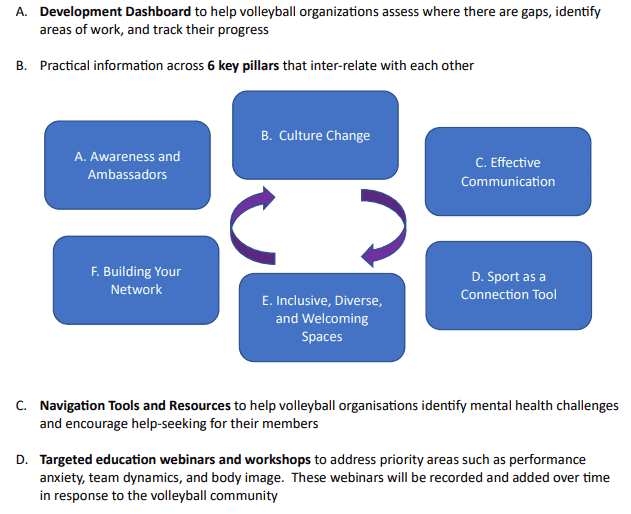
download the toolkit
The toolkit is fully customizable to the needs of each volleyball program or organisation.
Excerpts from the toolkit are available below. The full version of the Mental Health Toolkit is available to volleyball clubs, organisations, and programs that are members of Volleyball BC. For a copy please contact [email protected]
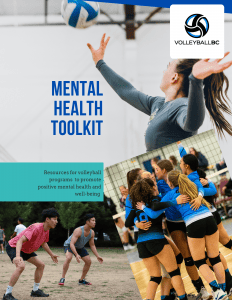
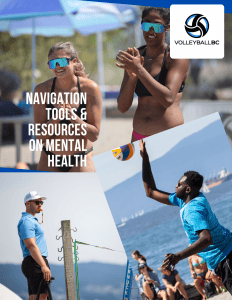
B5. Inclusive, Diverse and Welcoming Spaces – Introduction
B6. Building Your Network – Introduction
C. Navigation Tools – Abridged Version for Website
D. Webinars:
- Introduction to the toolkit – Dr. Shaunna Taylor and Emma Gibbons
- Managing Performance Anxiety – Dr. Shaunna Taylor
- Creating Positive Team Dynamics – Dr. Shaunna Taylor, Kyla Richey, Shanice Marcelle, and Derek Thiessen
- Cultivating Positive Body Image – Dr. Shaunna Taylor, Kyla Richey, Shanice Marcelle, and Derek Thiessen
- Self Care for Mental Well-being in Volleyball – Dr. Shaunna Taylor, Shanice Marcelle and Derek Thiessen
Note: Additional webinars, tools, and resources will be added over time into this section in response to the needs of the volleyball community.
meet our mental health ambassadors!

Can you share some of the ways that you practice your own positive mental health self-care?
“Through time I have developed a few different strategies to help me daily and other strategies to help me through more difficult moments. I don’t think there is a one way fits all approach and want to acknowledge that sometimes it takes a bit of trial and error to discover what works best for you as an individual. The 2 strategies that work best for me are to take to writing – whether it is journalling daily, or writing something more formal, and to focus on my breathing. I find putting my words and thoughts and emotions to paper helps me see things more clearly and is often a way to release when things become overwhelming. And breathing, when we learn to control it, can help bring our bodies and minds to a place of ease. “
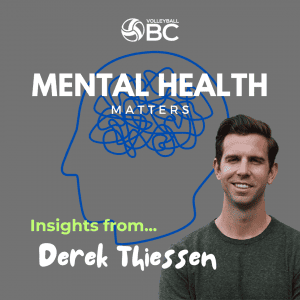
In your experience, how important is maintaining positive mental health and well-being in volleyball?
“Looking back on my time as an athlete, I can see how the quality of my mental well-being often influenced my performance in volleyball. Sometimes, we like to think that sports and life are separate enough domains that they don’t impact one another. However, in my experience, I found that when I felt stressed, overwhelmed, and/or depressed in life (whether from school, relationships, or something else), it would find a way to show up in training or competition. Yes, sports can be a healthy way to work through some of our stress and even blow off a little steam. However, I often found that if I did not address the underlying issues, it affected aspects of myself such as my confidence, self-esteem, focus, and passion for the game. In sports, we spend a lot of time focusing on developing the capacity of our body and increasing the skills we have in our craft, but we rarely seem to address the mind. I only realized this after I quit playing volleyball and now see it as such a crucial part of my ability to perform, not only in sports but also in life.”
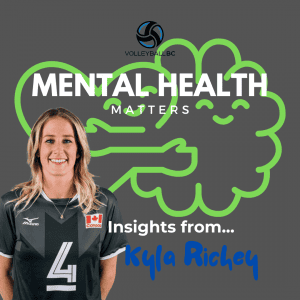
Can you tell us about some of the sources of support for your mental health and well-being during your volleyball career. Are there people or resources that play an important role for you?
I was fortunate enough to have access to a therapist ever since I joined Team Canada back in 2008. After going through a lot of personal trauma (such as losing my brother in 2013), I knew it was necessary to seek external resources if I were to continue playing volleyball. Therapists/counsellors/sports psychologists over the years, gave me tools that I could utilize in countless situations, both on and off the court. My family and teammates also played an invaluable role through my entire volleyball career, from university to Team Canada to professional teams abroad. My support system helped me get through my toughest moments/seasons.
LOOKING FOR A SPECIFIC MENTAL HEALTH TOPIC?
We heard from the volleyball community that there were particular mental health issues that needed addressing. Our toolkit comes with dedicated resources on a number of these topics. Click to download the factsheets.
Body image and disordered eating
Athlete self-care and stress reduction.
Activity Card – Mood Music Exercise
We are also hosting webinars on some of these topics. Check out section D above for links to the recordings.
